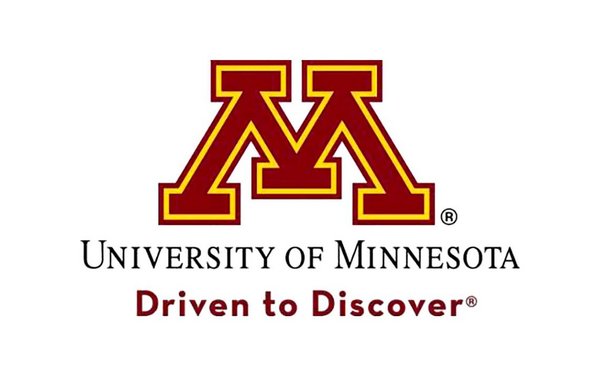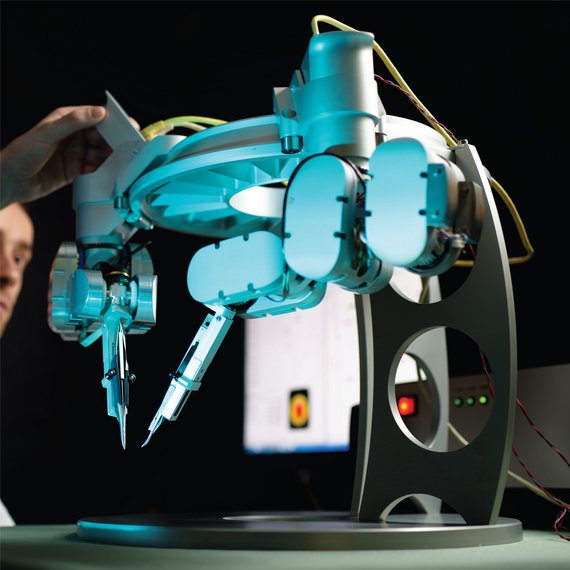Date
Monday December 5, 2022 from 9:00 AM to 5:30 PMLocation
Conference on Decision and Control, Cancun (Mexico)Organizer
Control Systems TechnologyFor more information and registration: https://css-registration.paperhost.net/cdc22
Please note: the workshop times are in line with Mexico time.
Aim of the Workshop
Public debate about the future of mobility and transportation is increasingly informed by predictions about the impact of Connected, Autonomous and Electrified Vehicles (CAEVs). As CAEVs are approaching market-readiness and are beginning to be deployed, there are still several socio-technical challenges to be addressed. Many of those are being identified as research topics in control systems, for instance:
- How can we design profitable and sustainable mobility systems that leverage CAEVs?
- What are the socio-technical challenges we are facing and how can control engineers contribute to address them?
- How should we adapt our infrastructure to adequately accommodate future autonomous, connected and electrified mobility systems, whilst leveraging existing transportation modes?
- How can we ensure that such technologies benefit all members of society, improving equity and fairness rather than undermining them?
- How can we ensure that such technologies are leveraged to help meet sustainability goals?
This workshop will gather experts from control systems, transportation, mechanical, electrical, computer and civil engineering, robotics, and social science in order to:
- identify challenges and opportunities in control systems for the future of transportation that are triggered by the advent of CAEVs,
- identify modeling and control methodologies to address them,
- share insights from early deployments and turn such insights into an actionable research roadmap.
From a technical perspective, we will discuss socio-technical and control problems from the individual vehicle-level up to the transportation-system-level, ranging from human-robot interaction to incentive and tolling schemes, and from network control problems to the combination of new (and old!) technologies within sustainable and human-centered mobility systems. Overall, the goal of the workshop is to provide researchers in control with an overview of current and future mobility challenges to be addressed by our community, and, at the same time, exchange new research results, ideas and visions on how our control community can contribute to sustainable and human-centered mobility systems and, ultimately, our society.
Intended Audience and Expected Outcomes
This workshop is geared towards researchers in control and mobility, industry practitioners, and public officials whose work involves the design, deployment, operation, or regulation of mobility systems. The workshop will present a variety of control challenges, tools and studies that underpin future transportation systems and will hopefully prompt fruitful conversations from the variety of stakeholders in such a monumental transformation of our transportation infrastructure, ultimately providing inspiration and new, transdisciplinary research ideas to our control community.
Invited Speakers
- Katie Driggs-Campbell, U. Illinois
- Will Barbour, Vanderbilt University
- Christos Cassandras, Boston University
- Michael Hyland, UC Irvine
- Dario Paccagnan, Imperial College London
- Mahnoosh Alizadeh, UC Santa Barbara
Program
Time | Talk |
09:00 – 09:15 | Mauro Salazar and Rafi Stern: Initial Remarks |
09:15 – 10:00 | Katie Driggs-Campbell Tools for Trustworthy: Human Modeling, Behavior Prediction, and Intuitive Inference |
10:00 – 10:30 | Break |
10:30 – 11:15 | Will Barbour Data and experimental applications of the I-24 MOTION testbed to CAEV research |
11:15 – 12:00 | Christos Cassandras Automating vehicle lane changing and cooperation compliance We show that analytical solutions for the optimal trajectories can be derived and are guaranteed to satisfy safety constraints for all vehicles involved in the maneuver. We also address the question: “if vehicles include human drivers that make decisions to cooperate or not in such maneuvers, how can we ensure that they are cooperation compliant?” We propose a general framework for such cooperation compliance that avoids explicit incentives or pricing schemes. |
12:00 – 13:30 | Lunch Break |
13:30 – 14:15 | Michael Hyland Operating a Shared-ride Automated Mobility-on-Demand Service with Walking Legs and Virtual Stops We propose a modeling and solution approach for the highly complex dynamic vehicle routing problem associated with the shared-ride automated MOD service with walking legs operational problem, where the operator decisions include i) assigning traveler requests to vehicles, ii) assigning traveler requests (and their assigned vehicles) to pickup and drop-off locations, iii) sequencing pickups and drop-offs for requests assigned to a vehicle, and iv) scheduling the pickups and drop-offs. To address this stochastic and dynamic problem for a large vehicle fleet (2000+ vehicles), we introduce and compare novel optimization-based operational policies that sequentially solve the four decision problems in different orders. Finally, we test the operational policies in a high-fidelity, high-resolution agent-based transportation system model, known as POLARIS, where network congestion is endogenous and travel times are stochastic. |
14:15 – 15:00 | Dario Paccagnan Two birds with one stone: optimal approximation for integral routing and congestion pricing |
15:00 – 15:30 | Break |
15:30 – 16:15 | Mahnoosh Alizadeh Ride Pricing and Competition in Autonomous Mobility on Demand Platforms |
16:15 – 17:30 | Final Panel Discussion |
|
|
|
|
Workshop organizers
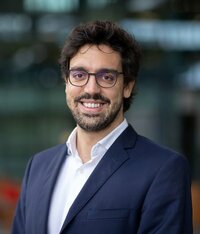
Mauro Salazar is an Assistant Professor in the Control Systems Technology section at Eindhoven University of Technology (TU/e), The Netherlands, with a co-affiliation at Eindhoven AI Systems Institute (EAISI). He received the PhD degree in Mechanical Engineering from ETH Zürich in collaboration with the Ferrari Formula 1 team in 2019, and then moved to Stanford University for his Postdoc until 2020. Mauro’s research is focused on optimization models and methods for cyber-socio-technical systems and control, with applications on sustainable and human-centered mobility, pandemics, and material design. He was awarded the ETH Medal for his MSc and PhD theses, and his papers were recognized with the Best Student Paper Award at the 2018 IEEE Intelligent Transportation Systems Conference and at the 2022 European Control Conference. In 2021, he received the Best Teacher Award in the Mechanical Engineering MSc, and, in 2022, he was nominated for TU/e’s Young Researcher Award.

Raphael Stern is an Assistant Professor in the Department of Civil, Environmental, and Geo- Engineering at the University of Minnesota. Prior to joining UMN, Dr. Stern was a postdoctoral researcher in the Department of Informatics at the Technical University of Munich. Dr. Stern has also spent time as a visiting researcher at the Institute for Software Integrated Systems at Vanderbilt University. Dr. Stern received a bachelor of science degree (2013), master of science degree (2015), and Ph.D. (2018) all in Civil Engineering from the University of Illinois at Urbana-Champaign.
More information about our presenters
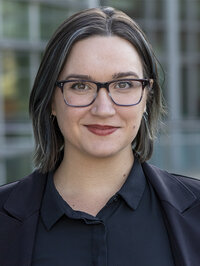
Katie Driggs-Campbell is currently an assistant professor at the University of Illinois at Urbana-Champaign in the Department of Electrical and Computer Engineering, with a courtesy appointment in the Department of Computer Science. Prior to joining Illinois, she received a B.S.E. with honors from Arizona State University in 2012 and an M.S. from UC Berkeley in 2015. She earned her PhD in 2017 in Electrical Engineering and Computer Sciences from UC Berkeley. After that, she was a Postdoctoral Research Scholar at the Stanford Intelligent Systems Laboratory in the Aeronautics and Astronautics Department. Katie now runs the Human-Centered Autonomy Lab, which aims to design safe autonomous systems and robots that can safely interact with people out in the real-world. Her work draws from the fields of robotics, learning, decision-making, control, and human factors, and is supported by the National Robotics Initiative 2.0, USDA/NIFA+NSF AI Institute, and industry collaborators in manufacturing and automotive domains. Katie is a recipient of the NSF CAREER award, and is also leading the ZJUI/UIUC Joint Research Center for Cyber-physical Manufacturing Networks (CyMaN).

William Barbour is a research scientist at the Institute for Software Integrated Systems at Vanderbilt University researching transportation systems and the impacts of connected and automated vehicles. He is a principle researcher on the I-24 MOTION project: a 4-mile testbed and data collection system consisting of 300 cameras with video processed to obtain trajectories for all vehicles on the roadway. Dr. Barbour earned his Ph.D. in civil engineering from Vanderbilt University; M.S. degree in civil engineering, with a concentration in sustainable and resilient infrastructure systems, from the University of Illinois at Urbana-Champaign; and B.S. in Biosystems Engineering from the University of Tennessee, Knoxville. William has previously worked at Oak Ridge National Laboratory and CSX Transportation.
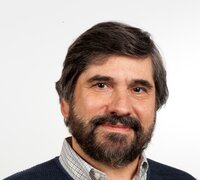
Christos G. Cassandras is Distinguished Professor of Engineering at Boston University. He is Head of the Division of Systems Engineering, Professor of Electrical and Computer Engineering, and co-founder of Boston University’s Center for Information and Systems Engineering (CISE). He received a B.S. degree from Yale University, M.S.E.E from Stanford University, and S.M. and Ph.D. degrees from Harvard University. In 1982-84 he was with ITP Boston, Inc. where he worked on the design of automated manufacturing systems. In 1984-1996 he was a faculty member at the Department of Electrical and Computer Engineering, University of Massachusetts/Amherst. He specializes in the areas of discrete event and hybrid systems, cooperative control, stochastic optimization, and computer simulation, with applications to computer and sensor networks, manufacturing systems, and transportation systems. He has published over 450 refereed papers in these areas, and six books. He has guest-edited several technical journal issues and serves on several journal Editorial Boards. In addition to his academic activities, he has worked extensively with industrial organizations on various systems integration projects and the development of decision-support software.
He has most recently collaborated with MathWorks, Inc. in the development of the discrete event and hybrid system simulator SimEvents. Dr. Cassandras was Editor-in-Chief of the IEEE Transactions on Automatic Control from 1998 through 2009 and has also served as Editor for Technical Notes and Correspondence and Associate Editor. He is currently an Editor of Automatica. He was the 2012 President of the IEEE Control Systems Society (CSS). He has also served as Vice President for Publications and on the Board of Governors of the CSS, as well as on several IEEE committees, and has chaired several conferences. He has been a plenary/keynote speaker at numerous international conferences, including the American Control Conference in 2001, the IEEE Conference on Decision and Control in 2002 and 2016, and the 20th IFAC World Congress in 2017 and has also been an IEEE Distinguished Lecturer. He is the recipient of several awards, including the 2011 IEEE Control Systems Technology Award, the Distinguished Member Award of the IEEE Control Systems Society (2006), the 1999 Harold Chestnut Prize (IFAC Best Control Engineering Textbook) for Discrete Event Systems: Modeling and Performance Analysis, a 2011 prize and a 2014 prize for the IBM/IEEE Smarter Planet Challenge competition (for a “Smart Parking” system and for the analytical engine of the Street Bump system respectively), the 2014 Engineering Distinguished Scholar Award at Boston University, several honorary professorships, a 1991 Lilly Fellowship and a 2012 Kern Fellowship. He is a member of Phi Beta Kappa and Tau Beta Pi. He is also a Fellow of the IEEE and a Fellow of the IFAC and holds a Chair Professorship at the Department of Automation, Tsinghua University.
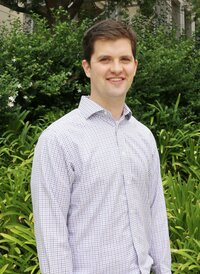
Michael Hyland is an Assistant Professor at the University of California, Irvine in the Civil and Environmental Engineering department. He is also an affiliate of the Institute of Transportation Studies at UC Irvine. His research focuses on modeling and analysis techniques to support the planning, design, management, and operations of multi-modal transportation systems. Specifically, he focuses on emerging transportation innovations and their impacts on transportation systems. Dr. Hyland is a member of the Transportation Research Board’s Network Modeling Committee and is a member of the Early Career Editorial Advisory Board for Transportation Research Part C: Emerging Technologies. He is a two-time recipient of the Dwight David Eisenhower Transportation Fellowship and was named one of the Top 20 Future Leaders in Transportation by the Eno Center for Transportation in 2016.

Dario Paccagnan is an Assistant Professor (Lecturer) at the Department of Computing, Imperial College London since the Fall 2020. Before that, he was a postdoctoral fellow with the Center for Control, Dynamical Systems and Computation, University of California, Santa Barbara. He obtained his PhD from the Automatic Control Laboratory, ETH Zurich, Switzerland, in 2018. He received a B.Sc. and M.Sc. in Aerospace Engineering from the University of Padova, Italy, in 2011 and 2014, and a M.Sc. in Mathematical Modelling and Computation from the Technical University of Denmark in 2014; all with Honors. Dario’s interests are at the interface of game theory and control theory, with a focus on the design of behavior-influencing mechanisms for socio-technical systems. Dario was a finalist for the 2019 EECI best PhD thesis award and was recognized with the SNSF Early Postdoc Mobility Fellowship, the SNSF Doc Mobility Fellowship, and the ETH medal for his doctoral work.
References: EC 2021 https://dl.acm.org/doi/10.1145/3465456.3467601, ArXiv https://arxiv.org/abs/2105.07480
Joint work with: Martin Gairing (University of Liverpool)
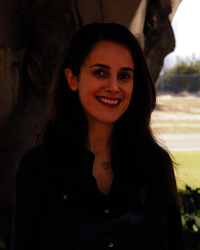
Dr. Mahnoosh Alizadeh is an associate professor of Electrical and Computer Engineering at the University of California Santa Barbara. She joined UCSB in January 2017, after two years as a postdoctoral scholar at Stanford University. Mahnoosh received the B.Sc. degree in Electrical Engineering from Sharif University of Technology in 2009 and the M.Sc. and Ph.D. degrees from the University of California Davis in 2013 and 2014 respectively, both in Electrical and Computer Engineering. Her research is focused on the design of learning and optimization algorithms for cyber-physical systems, with applications in smart power grids and electric transportation systems. She is a recipient of the NSF CAREER award.

